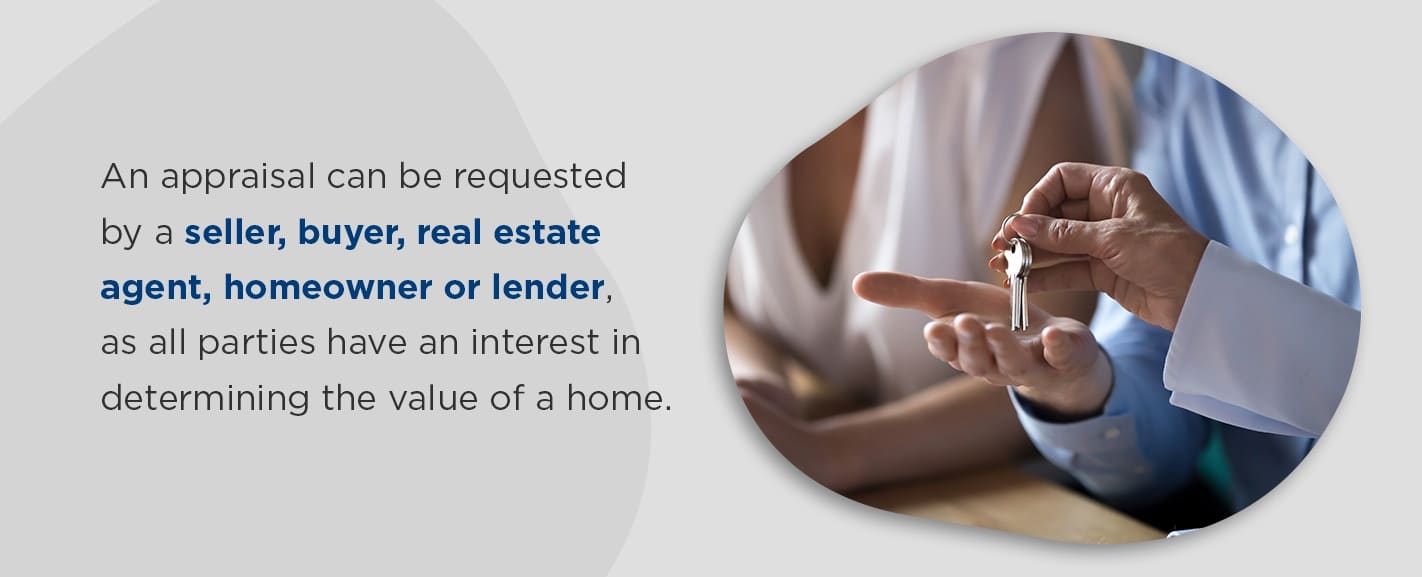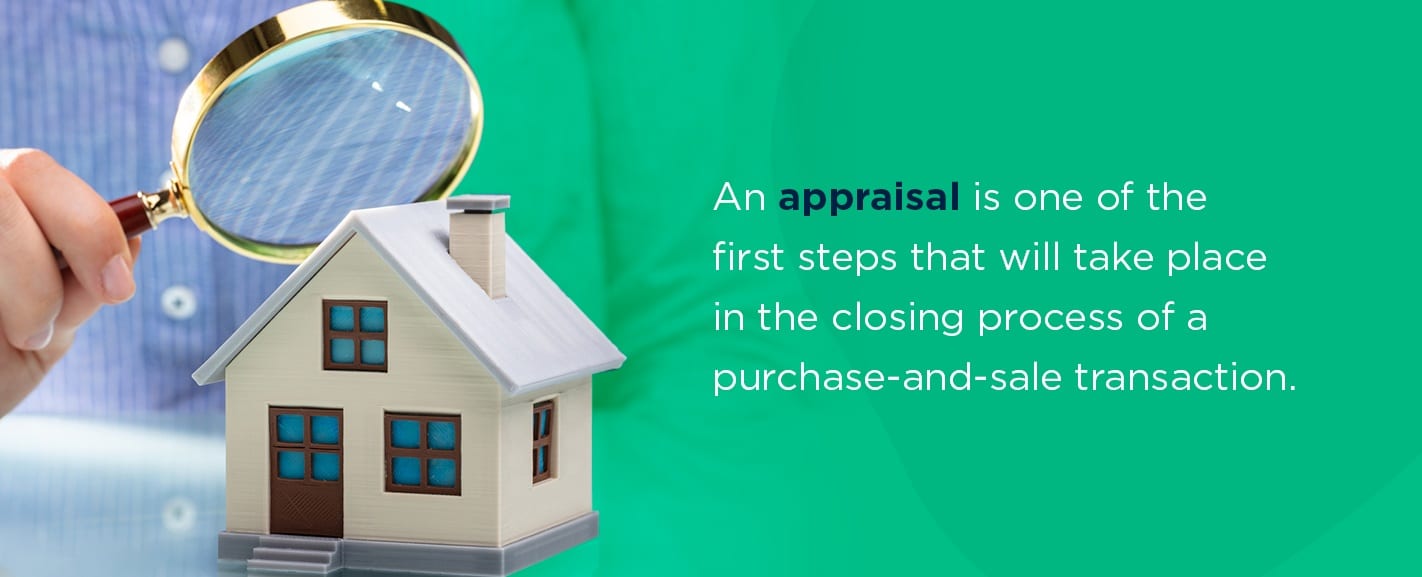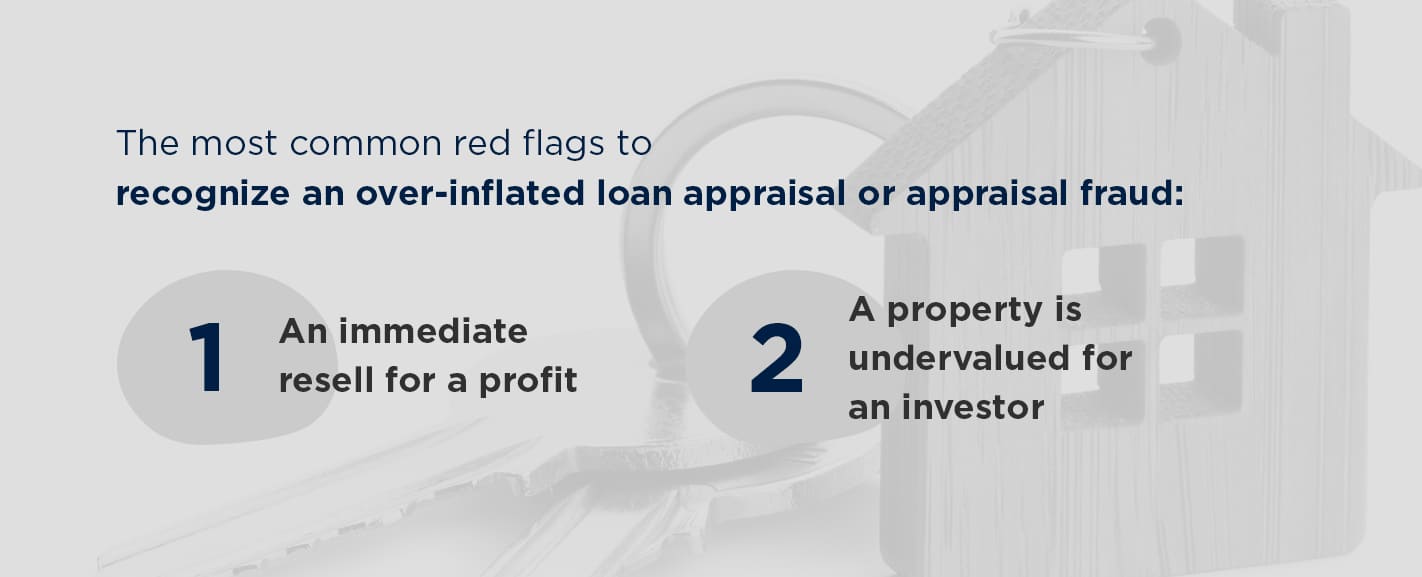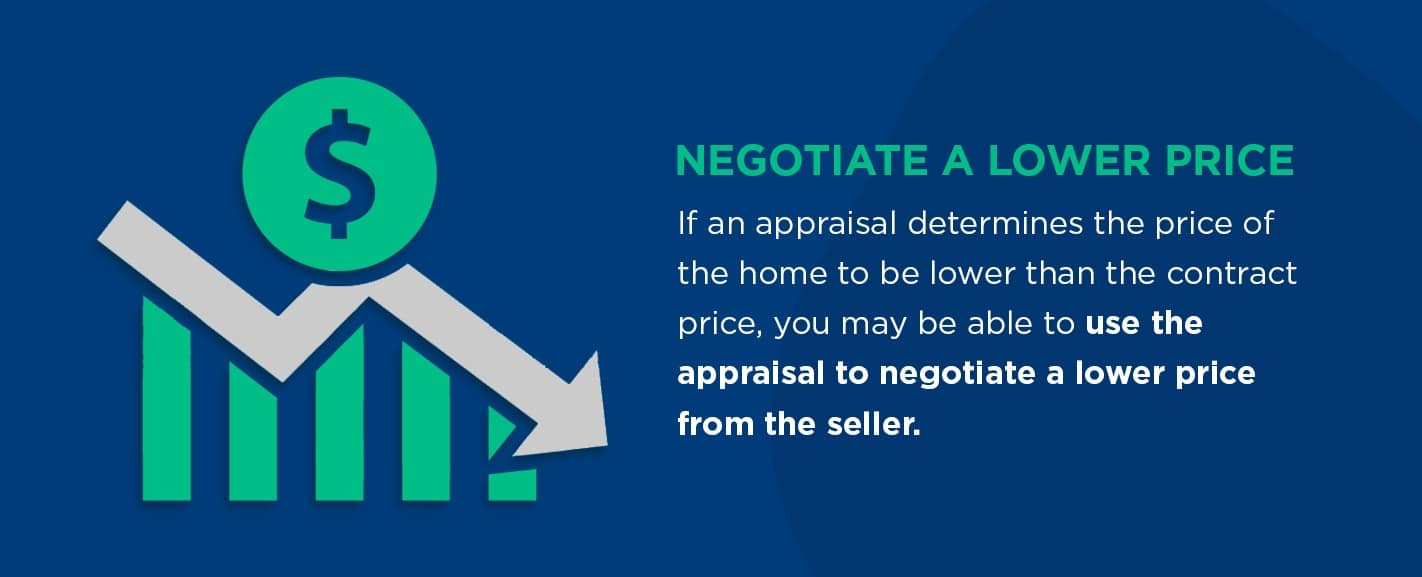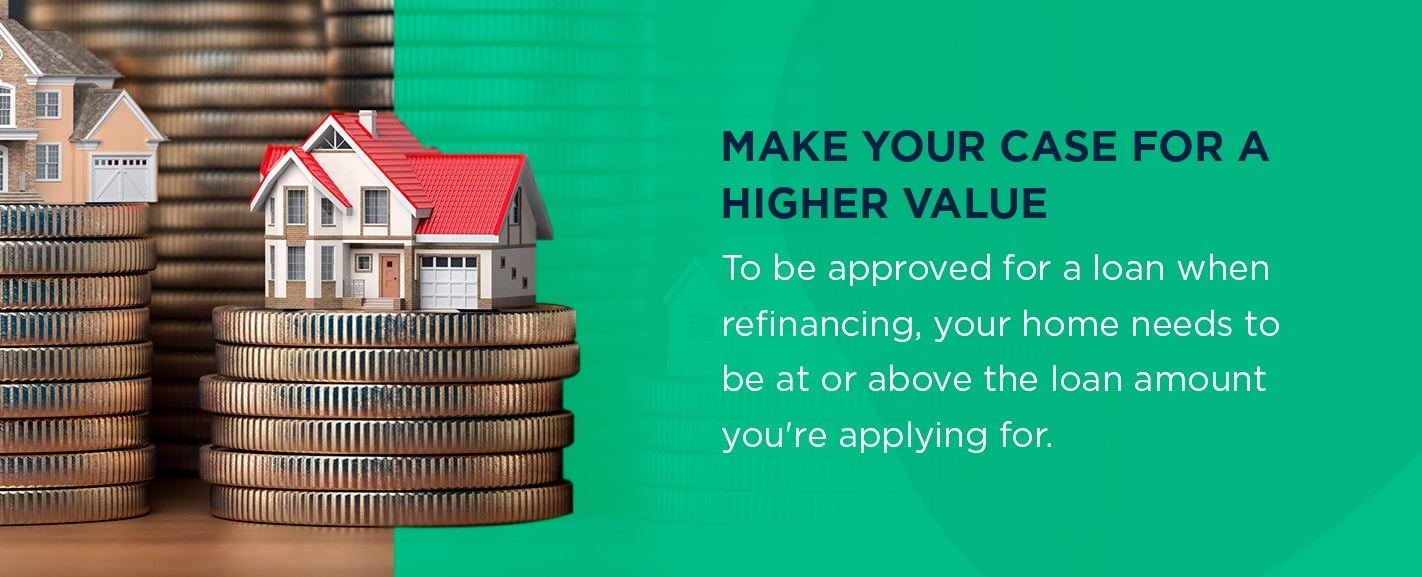Appraisals are an essential step in the home buying process. An appraisal informs the buyer, seller and lender about the value of a home and is intended to prevent buyers and lenders from overpaying for a property. Appraisers determine a home’s worth by considering a variety of factors, including the size, condition, location, number of rooms and comparable sales in the area.
The appraiser must be an impartial third party with no interest in the outcome, so the appraisal can be considered fair. As long as the appraiser determines the value of the home to be equal to or higher than the asking price of the home, the sale can continue. If the home is appraised at a lower value, this can slow or halt the process.
Topics Covered
- The Home Loan Appraisal Process
- How Does the Appraisal Process Work?
- Over-Inflated Loan Appraisals
- Loan Appraisals and Homebuyers
- How to Avoid Over-Inflated Loan Appraisals
- Apply for a Loan From Assurance Financial
The Home Loan Appraisal Process
Understanding loan appraisals is key to recognizing and avoiding over-inflated estimates. In this guide, we’ll discuss the process of loan appraisals, who requests them, what red flag to look out for and more:
Who Requests Appraisals?
An appraisal can be requested by a seller, buyer, real estate agent, homeowner or lender, as all parties have an interest in determining the value of a home. However, each may have a different reason for requesting an appraisal:
- The seller: The seller of the home may request an appraisal to determine the asking price of their home or to support their asking price before they put the home on the market. Though a seller isn’t required to have an appraisal conducted, an appraisal can be helpful if they’re uncertain about the home’s actual value.
- The buyer: The buyer may request an appraisal if they’re hoping to negotiate a lower price for the home.
- The real estate agent: The buyer’s real estate agent may also request an appraisal if they believe the home is priced unusually high when compared to similar sales in the area.
- The homeowner: If a homeowner is looking to refinance their home, they may also request an appraisal.
- The lender: Before a lender approves a loan, they will most likely request an appraisal, since the home is collateral for the mortgage. If the buyer can’t continue making payments on their loan, the lender will need to sell the home to recoup their costs, and if the property was initially overpriced, the lender won’t be able to get back the full price of the loan.
An appraisal may be requested more than once to negotiate the best deal. Though a home usually doesn’t need to be appraised more than once, any of the three parties involved may request an additional appraisal if they deem it necessary.
How Does the Appraisal Process Work?
Depending on the size and complexity of the home, an appraisal can take less than an hour or several. An appraisal is also one of the first steps that will take place in the closing process of a purchase-and-sale transaction. You’ll even need an appraisal for a house you haven’t built yet.
During this step, a professional appraiser will walk carefully around the property, examining the condition of both the exterior and interior with the intention of determining the fair market value or a fair range of values. They will make a note of any conditions that negatively impact the value of the property. If your home needs repairs, for example, this could negatively impact the property’s value. The appraisal value is what the property should sell for on the market.
For a purchase-and-sale transaction, the appraisal fee is generally paid for by the borrower and can cost several hundred dollars. An appraisal can also be requested in a refinance transaction to ensure the lender isn’t giving the borrower a loan of an amount higher than the property is worth.
An appraiser should be certified or licensed, familiar with the local area and impartial with no interest in the sale. An appraiser should have certifiable experience appraising similar properties in the area. To complete the process, an appraiser will consider:
- Soiled carpeting
- Water-stained walls
- Persistent odors
- Broken windows
- Plaster cracks
- Leaky faucets
- Cracked ceilings
- Damaged light fixtures
- Code violations
- Pests
- Floor plan functionality
- The square footage
- The number of bathrooms and bedrooms
- Comparable sales, known as comps
- The condition of the home’s permanent features, including square footage, age, location, views and lot size
An appraiser is not looking at the condition of the furniture, the cleanliness of the home or the performance of the heating and cooling systems, though they will check that they exist and are working. Appraisers focus mostly on your home’s permanent fixtures and the condition of these features.
After the appraiser completes their evaluation of the property, they will then provide their conclusions and analysis based on their observations. In their report, an appraiser needs to include a sketch of the exterior, an explanation for the calculation of the home’s square footage, a street map that shows the appraised property and the comparable sales used for the appraisal, photos of the front exterior of every comparable property, and photos of the home’s front, back and street view.
The report should also include other relevant information the appraiser used to determine the fair market value of the home, such as public land records, market sales data and public tax records.
Sellers can often increase their home’s appraisal value by:
- Patching up walls
- Repairing broken windows
- Fixing leaky faucets
- Trimming hedges
- Mowing the yard
- Repairing or replacing broken garage doors
- Informing the appraiser of positive updates to the neighborhood, such as a new school.
- Writing down all the improvements and repairs you’ve made over the years, from a new roof to a new sink. Include when these updates were completed and the cost of each.
An appraisal should provide the true value of a home, which is why it’s such an important step in the process of buying a home and why the appraisal needs to be accurate. If a home is appraised at or above the asking price, the transaction can proceed as planned. If the appraisal is below or above the asking price, the transaction can get delayed or fall apart entirely.
If a home is appraised to be higher than the asking price, the lender will only issue a mortgage for the appraisal amount. This leaves the borrower to either cover the remaining cost on their own or return to searching for a home with a listed price that matches the appraised value. Appraisals are also used in estimating property taxes for a home, so this is an additional cost that could affect the homeowner.
If a seller wants to make a sale, their asking price needs to align with the appraisal value. If a buyer wants to purchase a home, the asking price and mortgage amount needs to align with the appraisal value. This is why an appraisal is so essential for everyone involved in the process and why avoiding over-inflated loan appraisals is crucial.
Over-Inflated Loan Appraisals
What is an over-inflated loan appraisal? What impacts does an over-inflated loan appraisal have on the home buying process?
An inflated loan appraisal determines an asking price that is much higher than the market value of the home. An over-inflated appraisal is a type of mortgage fraud that could cause a buyer to pay much more for a home than they should.
What Are the Causes of Over-Inflated Loan Appraisals?
Though no appraiser is perfect, they are highly-trained professionals with several years of experience and are required to continue their education throughout their careers. They have to prove all of their findings that factor into a home’s value and are heavily regulated. The consequences of doing their job poorly — by issuing a biased or intentionally misleading report — can be severe. Because of this, appraisers work diligently to make sure they keep their biases and personal judgments out of their work.
So why is appraisal fraud committed? Appraisal fraud is typically used to:
- Help the seller make more money from selling the home.
- Help the buyer be in a better position to finance mortgage payments.
- Help the homeowner obtain better refinancing or a home equity loan.
Appraisers aren’t the only ones who can commit appraisal fraud. Sometimes buyers, sellers or homeowners will alter an appraisal using digital editing or bribery. Appraisers may also work with a real estate agent to increase a home’s purchase price to boost commission.
Appraisers can feel pressured to inflate a home’s price so the deal can work out between the buyer and seller. If an appraiser believes a home to be worth less than the asking price, a borrower may not be able to obtain a mortgage if the loan amount is higher than the lender’s limit. If a borrower needs to put 20 percent toward a down payment, for example, a higher home price could create conflict. A buyer may not be able to afford a home if it’s deemed more expensive, and an appraiser may not want to be the bearer of bad news.
To protect themselves against this fraud, lenders will request a separate appraisal, often with a preferred appraiser. This generally happens around the time of closing, so even if the buyer is ready to purchase the house, the lender may require the seller to lower the price, or they may not approve the loan.
A homeowner or buyer may also want to err on the side of caution and seek a second opinion if they’re making a decision using someone else’s appraisal.
How to Recognize an Over-Inflated Loan Appraisal or Appraisal Fraud
Despite strict regulations, appraisal fraud still occurs. If you can recognize these common scams and schemes, you may be able to avoid appraisal fraud. The most common red flags are:
- An immediate resell for a profit: Appraisal fraud can sometimes occur with property flipping. If a home is purchased below market value and then immediately sold for a profit with the assistance of an appraiser who declares the property is worth much more than the initial estimate, this is a sign of appraisal fraud.
- A property is undervalued for an investor: A property might be undervalued by an appraiser so an investor can purchase the property.
Other signs of appraisal fraud include:
- The property listed for the appraisal is inconsistent with the property on the application.
- The locations or types of comparable sales are inconsistent.
- Photographs of the property don’t match the description in the appraisal
Loan Appraisals and Homebuyers
Are you a homebuyer who has been affected by inaccurate loan appraisals? Odds are, you don’t want the transaction to fall through, and neither does the seller. Generally, lenders don’t lend the total value of the home — depending on the borrower’s qualifications and the type of mortgage — so they definitely won’t lend more money than a home is worth.
Lenders want to take on as little risk as possible. If you can’t pay back your loan, they need to get their money back by selling the home. But if they gave you more money than the home was worth, they’re unlikely to make their money back. If you’re the buyer, this means you’re unlikely to get the loan you need to pay for your dream home.
Luckily, there are several things you can do as a homebuyer to if you think an appraisal is inaccurate:
Negotiate a Lower Price
If an appraisal determines the price of the home to be lower than the contract price, you may be able to use the appraisal to negotiate a lower price from the seller. The seller is likely motivated to sell, and at such a late point in the transaction, they may be willing to drop the price in order to close.
On the other hand, the seller may be dissatisfied with a low appraisal and believe it to be inaccurate. As such, they may not be willing to drop the price, or they may challenge a low appraisal. For example, if the appraisal value has been affected by foreclosures and short sales in the local area, the seller may be able to convince the appraiser that their home is worth more than the other properties because it’s in better condition.
Fortunately, if the owner can get the appraisal value up to the contract value, this will allow you to continue on with the process as planned.
Get a Second Opinion
Is an appraisal standing between you and your dream home? If so, you may want to consider getting a second opinion. You can request an appraisal to be performed by a different appraiser, who may assess the property at a different value. Appraisers are human, so mistakes can be made, and information can be overlooked.
Appraisers can also feel pressure from the people they work for to make a deal work. If they work for a lender, the appraiser may feel their livelihood is threatened if the numbers they provide don’t close the deal. An impartial appraiser is the key to an accurate estimate.
Make Your Case for a Higher Value
You can also speak with the initial appraiser and make your case for a higher value. If the appraiser agrees with you, they may revise their evaluation. This will allow you to continue forward with the transaction as planned.
You also may run into issues if you’re refinancing a mortgage and wind up with a low appraisal. To be approved for a loan when refinancing, your home needs to be at or above the loan amount you’re applying for. If the appraisal comes in under that amount, you won’t be able to qualify for the loan. An exception to this is if you have an FHA mortgage, you may be able to refinance your home without an appraisal.
When it comes to inaccurate loan appraisal, homebuyers have options. You can attempt to obtain a more accurate appraisal or use the appraisal to your advantage. Knowing how to improve this situation will ensure you come out of the appraisal process with the deal you wanted.
How to Avoid Over-Inflated Loan Appraisals
How can you avoid over-inflated loan appraisals? Try the following tips to avoid an inflated loan appraisal:
Hire an Appraiser Yourself
One way you can avoid an over-inflated loan appraisal is by hiring your own appraiser. You’ll have to pay for an appraisal when you buy or refinance a home anyway, so using that money to give you the peace of mind you need is well worth it.
Ask for References
You can ask for references for an appraiser from banks. A bank is likely to hire an ethical, competent appraiser, so you’re likely to find one who is impartial and honest.
Understand the Appraisal Process
When an appraisal determines a home’s true value to be similar to the asking price, then an appraisal is simply a box to check off during closing. When a home appraisal is substantially different from the contract price, however, the transaction can come to a grinding halt. By understanding the ins and outs of the appraisal process, you can ensure it works in your favor and combat any problems that may arise.
If you can avoid an over-inflated loan appraisal, you can spare yourself and everyone involved the headache and heartache of a disrupted home transaction.
Seek Help From a Loan Officer
A loan officer can help buyers avoid getting the wrong appraisal. A loan officer evaluates and recommends approval for loan applications, so they’re on your side when it comes to financing your future home.
When you meet with a loan officer, you can present yourself as a worthy candidate for a loan. Demonstrate your creditworthiness and explain the issues that may come up on your credit history, like a missed payment on your credit card.
Sometimes, the process of applying for a loan can seem like it’s all about the numbers — your salary, your credit score, your debt-to-income ratio and your total debt. But loan officers can look beyond the numbers. After speaking with a loan officer, they can support you as a candidate for a loan and pass you along to the underwriting process.
A loan officer can help you along the process of financing your dream home and provide valuable insight to help you avoid an over-inflated appraisal. Since lenders want to avoid over-inflated home appraisals, a loan officer will be sure to work with you to get an accurate one.
[download_section]
Apply for a Loan From Assurance Financial
The process of appraising a home can be lengthy and complicated. Luckily Assurance Financial is here to help.
We are dedicated to providing the assistance you need to receive your loan hassle-free. Ready to get started? Apply online in 15 minutes or less!


